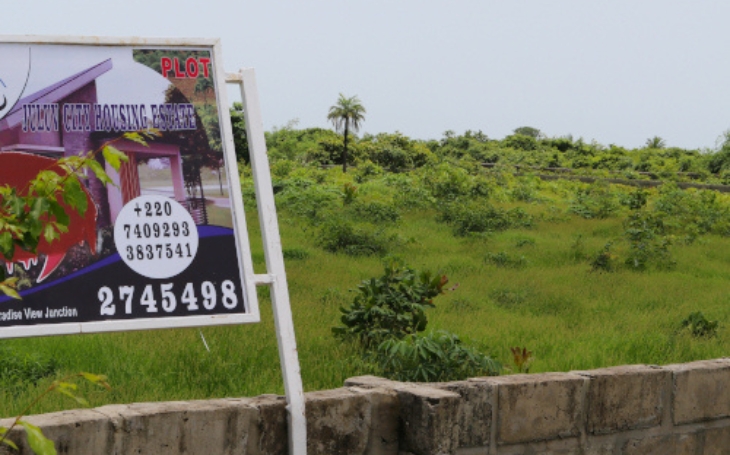
Common Challenges in Gambia's Real Estate Market
- By, Admin
- 01 Jul, 2024
Introduction
The Gambia, a small West African country, boasts a real estate market ripe with potential. Yet, diving into this market reveals a myriad of challenges. Understanding these obstacles is crucial for anyone looking to invest or engage in real estate within the country. Let's explore the common hurdles faced by stakeholders in Gambia's real estate market and consider ways to navigate them effectively.
Historical Context
Development of Real Estate in Gambia
The real estate market in Gambia has evolved significantly over the decades. From modest beginnings, the market has seen phases of rapid growth and periods of stagnation. Key milestones, such as the development of urban centers and tourism hotspots, have shaped the current landscape.
Key Milestones and Transformations
Significant transformations have occurred due to urbanization, increased foreign interest, and governmental initiatives aimed at boosting housing and infrastructure. However, these advancements come with their own set of challenges.
Regulatory and Legal Challenges
Complex Property Laws
Navigating Gambia's property laws can be daunting. The legal framework is often complex, with various statutes and regulations that can confuse potential investors.
Issues with Land Title Verification
One major issue is the verification of land titles. Many properties lack clear and verified titles, leading to disputes and legal battles.
Bureaucratic Hurdles
The bureaucratic processes involved in property transactions can be slow and cumbersome, often deterring potential investors.
Economic Factors
Impact of Economic Instability
Gambia's economy has faced its share of ups and downs, significantly affecting the real estate market. Economic instability can lead to decreased investor confidence and fluctuating property values.
Inflation and Currency Fluctuations
Inflation and currency fluctuations pose additional challenges, impacting the affordability and valuation of properties.
Access to Financing
Limited access to financing options is a critical barrier for both developers and buyers. The high cost of borrowing and stringent lending criteria restrict market growth.
Infrastructure Development
Inadequate Infrastructure
The lack of adequate infrastructure, such as roads, utilities, and communication networks, hampers real estate development.
Transportation and Connectivity Issues
Poor transportation and connectivity further complicate real estate transactions and reduce property attractiveness.
Impact on Property Values
Infrastructure shortcomings directly affect property values, making it difficult to attract high-end investments.
Social and Cultural Factors
Influence of Local Customs and Traditions
Local customs and traditions play a significant role in real estate transactions. Understanding and respecting these can be crucial for success.
Community Resistance to Development
New developments often face resistance from local communities, which can delay or halt projects.
Importance of Social Dynamics
Social dynamics, including family structures and community relationships, influence property ownership and use.
Market Dynamics
Supply and Demand Imbalance
There is often a mismatch between supply and demand, with either an oversupply of certain property types or a shortage of others.
Speculation and Market Volatility
Speculation can lead to market volatility, making it difficult to predict property values and investment returns.
Influence of Foreign Investment
Foreign investment can significantly impact the market, sometimes driving up prices and making properties unaffordable for locals.
Environmental Challenges
Coastal Erosion and Climate Change
Gambia's coastal areas are prone to erosion and climate change effects, which can threaten properties and reduce their value.
Sustainable Development Concerns
Sustainable development practices are essential but often overlooked, leading to environmental degradation and long-term risks.
Impact on Property Location and Value
Environmental factors heavily influence property location desirability and value, making some areas more vulnerable than others.
Technological Barriers
Limited Adoption of Technology
The adoption of technology in Gambia's real estate market is limited. This hampers efficiency and modernization efforts.
Lack of Digital Real Estate Platforms
The absence of digital platforms for real estate transactions makes it difficult for buyers and sellers to connect and conduct business efficiently.
Challenges in Property Management
Effective property management is challenging without technological support, leading to maintenance and operational issues.
Professional Expertise and Workforce
Shortage of Skilled Real Estate Professionals
There is a shortage of skilled professionals in the real estate sector, affecting the quality of services and project execution.
Need for Specialized Training
Specialized training programs are needed to build a competent workforce that can address market challenges effectively.
Role of Professional Associations
Professional associations can play a vital role in standardizing practices and providing support to real estate professionals.
Security Concerns
Property Theft and Vandalism
Property theft and vandalism are significant concerns, particularly in less secure areas, impacting investor confidence.
Safety Concerns in Certain Areas
Safety concerns in certain regions can deter investments and reduce property values.
Impact on Investor Confidence
Security issues directly affect investor confidence, making it crucial to address these concerns for market stability.
Foreign Investment Policies
Regulations for Foreign Investors
Regulations for foreign investors can be complex and restrictive, limiting the potential influx of foreign capital.
Challenges Faced by Foreign Buyers
Foreign buyers often face additional challenges, including legal restrictions and bureaucratic hurdles.
Incentives and Disincentives
While there are incentives for foreign investment, disincentives such as high taxes and restrictive policies can outweigh the benefits.
Case Studies and Examples
Success Stories in Overcoming Challenges
Examining success stories where challenges have been effectively addressed can provide valuable insights.
Lessons Learned from Other Markets
Lessons from other markets can be applied to Gambia, offering strategies to overcome local challenges.
Applicability to Gambia
Identifying the applicability of these lessons to Gambia's unique context is essential for practical solutions.
Future Prospects
Potential for Market Growth
Despite the challenges, there is significant potential for growth in Gambia's real estate market, driven by various positive trends.
Strategic Recommendations
Strategic recommendations include improving infrastructure, enhancing regulatory frameworks, and promoting sustainable development.
Role of Government and Private Sector
Both the government and private sector have crucial roles to play in addressing challenges and fostering market growth.
Conclusion
Navigating Gambia's real estate market requires a deep understanding of its unique challenges. From regulatory hurdles and economic factors to infrastructure issues and social dynamics, each challenge presents an opportunity for growth and development. By addressing these challenges strategically, stakeholders can unlock the full potential of this promising market.



